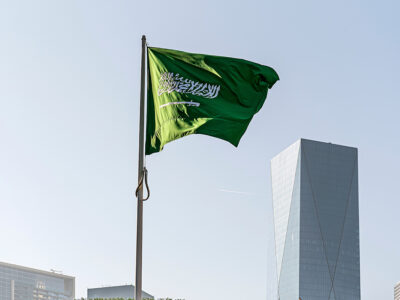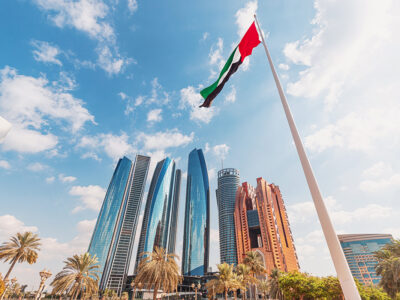Saudi Arabia has identified and highlighted the rights and opportunities for expat workers in the Kingdom.
Developments include wage protection, contract guarantees, minimum holiday offerings, a clear legal framework and more.
Saudi Arabia prioritises the protection of expatriate workers’ rights as a cornerstone of a balanced labour market and sustainable economic development. Aligned with the Kingdom’s Vision 2030, which emphasises justice and human dignity, safeguarding these rights has become a national imperative.
Saudi expat jobs
Through progressive legislation and innovative initiatives, Saudi Arabia strives to cultivate a fair and equitable work environment, demonstrating its commitment to local and international human rights principles across various sectors.
A comprehensive legal framework has been established in the Kingdom to protect the rights of expatriate workers and ensure justice and transparency.
The Saudi Labour Law governs the relationship between workers and employers, mandating written employment contracts that clearly define wages, tasks, and responsibilities, thereby establishing clear obligations and rights for both parties.
Employers are also required to pay wages on time through the “Wage Protection Program,” an electronic system launched by the Ministry of Human Resources and Social Development.
This system monitors wage disbursements for all workers in private sector establishments, both Saudi and expatriate, creating a database of updated wage payment information.
The program assesses establishments’ compliance with timely and agreed-upon wage payments, promoting transparency and minimising disputes.
Furthermore, the system guarantees a minimum wage and ensures end-of-service compensation for workers upon contract termination, in accordance with the labour law’s stipulations.
The system also regulates working hours and grants workers paid annual leave and sick leave, which promote a work-life balance.
The Wage Protection Program has successfully protected the wages of more than 8.5m employees in Saudi Arabia.
It has also contributed significantly to reducing labour disputes, curbing commercial concealment crimes, decreasing reliance on cash transactions, attracting foreign investment from regional companies, and fostering a secure and appealing work environment for expatriates.
The Musaned Platform’s domestic worker contract insurance service safeguards the rights of domestic workers, with more than 500,000 workers currently covered.
This service offers several benefits, including compensation for domestic workers in cases of permanent total or partial disability resulting from accidents.
It also provides compensation if the employer fails to pay salaries and financial dues due to the employer’s death or permanent total or partial disability.

Saudi Arabia has implemented significant regulatory amendments to strengthen the worker-employer relationship, notably abolishing the traditional Kafala (sponsorship) system and replacing it with the contractual relationship improvement initiative.
This ministry-led initiative represents a substantial step toward enhancing the work environment and bolstering expatriate worker rights, aligning with the Kingdom’s Vision 2030 and the National Transformation Program.
Benefiting more than one million workers, the initiative aims to build an attractive labour market, empower and develop human competencies, and improve the work environment.
It facilitates job mobility, allowing workers to transfer to new employment upon contract completion without requiring prior employer approval.
It also grants workers the right to exit, return, and travel permanently by electronically notifying the employer, eliminating the need for employer consent.
These changes enhance worker independence and bolster the global appeal of the Saudi labour market.
Saudi Arabia, through the Ministry of Human Resources and Social Development, has regulated working hours and rest periods, ensuring expatriate worker rights and promoting work-life balance.
The Saudi Labour Law stipulates a maximum of eight working hours per day, or 48 hours per week, with the possibility of extending this to nine hours for certain categories or reducing it to seven hours for hazardous or harmful work.
Employers are required to provide rest, meal, and prayer breaks totalling no less than half an hour during the workday, ensuring that workers do not work more than five consecutive hours without a break.
These periods are not counted as actual working hours.
The ministry’s Unified Contract Program for recruiting domestic workers has strengthened the protection of domestic worker rights by establishing a binding contract that specifies the obligations of both parties.
The ministry has also updated the list of domestic workers and those of similar status, clarifying the contractual relationship, simplifying the contracting and litigation process in case of disputes, adding definitions, provisions, and controls, and addressing the rights and duties of both employers and domestic workers.
The ministry has taken proactive measures to regulate contractual relationships and protect the rights of foreign workers before their arrival in Saudi Arabia.
Key among these is the Professional Accreditation Program, which includes the “Qualification Verification” and “Skills Verification” services.
The Qualification Verification service, conducted through a fully automated electronic platform, verifies the skills, experience, and certifications of highly skilled expatriate workers within a maximum of 15 working days.
The Skills Verification service evaluates the skill level of medium- and low-skilled workers in professions that do not require academic degrees through practical and theoretical tests, both before and after their arrival in the Kingdom.
Transferring domestic workers’ services between individuals has also been made available via the Musaned platform to enhance recruitment quality, protect rights, and regulate the contractual relationship between all parties.
Regarding leave entitlements, the law guarantees employees a minimum of 21 days of paid annual leave, increasing to 30 days after five years of continuous service, with leave pay provided in advance.
Employees are also granted sick leave with full pay for the first 30 days, three-quarters pay for the next 60 days, and unpaid leave thereafter, all within the same year.
Special leave is also provided, including five days upon the death of a spouse, parent, or child, and three days upon marriage or the birth of a child, in addition to a one-time paid Hajj leave, lasting between 10 and 15 days, during the employee’s service.

These provisions contribute to justice and ensure comfort and stability for employees within the Kingdom’s work environment.
Concerning employee health and safety, the Kingdom has developed a comprehensive national occupational health and safety policy, aiming to protect workers and provide a safe, risk-free work environment.
Safety regulations mandate that employers adhere to strict standards for preventing occupational injuries and diseases, including providing necessary protective equipment and conducting regular training on general safety procedures, such as handling hazardous materials and responding to workplace emergencies.
To safeguard workers in exposed environments, the Ministry of Human Resources and Social Development has mandated a prohibition on outdoor work under direct sunlight during the summer months, from noon to 3 pm, between June 15 and September 15 annually.
This measure aims to mitigate health risks associated with extreme heat and heat stress. The ministry conducts regular inspection campaigns to ensure compliance and imposes penalties on violators to protect worker health and rights.
The ministry emphasises employers’ commitment to implementing safety programs and procedures as stipulated by the Saudi Labour Law, including providing first aid and fire protection measures and ensuring the presence of a safety officer in major establishments.
Government agencies collaborate with the private sector to promote a culture of occupational safety through awareness training programs, contributing to a reduction in workplace accidents and injuries.
The ministry’s Labour Attaché program raises worker awareness of labour laws, rights, and duties within Saudi Arabia.
The ministry has also bolstered the protection of expatriate workers’ financial rights by introducing an insurance product covering their dues in private sector establishments in case of employer default.
This product aims to protect workers and mitigate the impact of unpaid dues, providing various benefits as outlined in the insurance policy.
To streamline procedures, the ministry has facilitated easy and flexible financial transfer solutions for domestic workers, signing strategic agreements with numerous local banks and electronic payment channels.
The contract documentation service plays a vital role in preserving worker rights, with over nine million worker contracts currently documented.
Among the ministry’s comprehensive educational programs and initiatives, the Labour Culture initiative stands out, educating workers and employers about their rights and duties as specified in Saudi Labour Law.
It includes multilingual awareness materials to ensure accessibility for all workers. The ministry’s awareness efforts include integrated campaigns across traditional and modern media, featuring explanatory videos and multilingual electronic and print guidebooks that simplify labour regulations and worker rights concerning wages, working hours, and vacations.
The ministry also conducts regular workshops and training courses for expatriate workers and employers to enhance awareness of the labour law and regulations.
This integrated approach raises legal awareness among all parties and ensures compliance with legislation, fostering a safe and stable work environment.
Saudi Arabia prioritises advanced protection mechanisms, including effective channels for reporting violations, submitting complaints, and seeking redressal through relevant authorities to resolve labour disputes according to established legal procedures.
Violations can be reported through official channels, such as the ministry’s application, which allows for confidential and easy reporting. Labour courts have also been established to provide swift and fair resolutions to labour disputes.
The Kingdom has strengthened the rights of expatriate women in the labour market through legislation and effective initiatives designed to achieve equality and equal opportunities.
Saudi Labour Law mandates equal wages between men and women, prohibiting wage discrimination based on gender or any other factors.
The Kingdom has also reinforced women’s rights through initiatives supporting their participation across various sectors.
Since joining in 1976, the Kingdom has strengthened its strategic partnership with the International Labour Organisation (ILO) to improve the work environment and develop its legislation in line with international best practices.
The Kingdom has ratified several international agreements aimed at enhancing worker rights, most notably Occupational Safety and Health Convention No. 187, which focuses on developing comprehensive national policies to ensure worker safety and mitigate workplace risks.
These ratifications demonstrate the Kingdom’s commitment to implementing the highest occupational safety standards, enhancing the sustainability and quality of the Saudi labour market.
The Kingdom actively hosts and organises international conferences in partnership with the ILO and other international institutions to discuss challenges and opportunities facing labour markets both locally and globally.
These conferences promote social dialogue among stakeholders and facilitate the development of strategies that adapt to economic transformations and labour market changes.
Key issues addressed in these conferences include promoting decent work practices, providing sustainable job opportunities, and achieving equality between men and women in the work environment.
This comprehensive set of policies and initiatives has enhanced the Kingdom’s position as an attractive work destination that respects the rights of expatriate workers.
The focus on improving the work environment and measuring worker engagement has also contributed to increased worker satisfaction, attracting global talent and raising labour market productivity, in alignment with the Kingdom’s Vision 2030, which aims to enhance quality of life and the competitiveness of the local and international economy.








